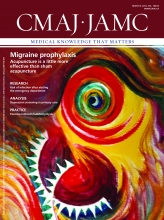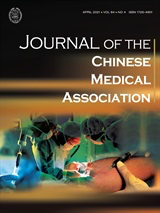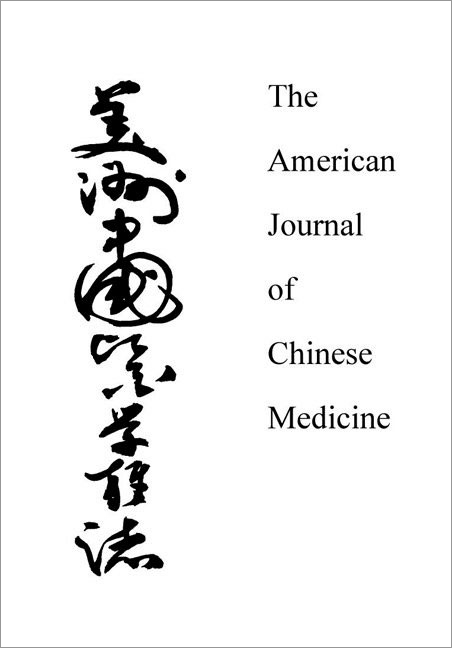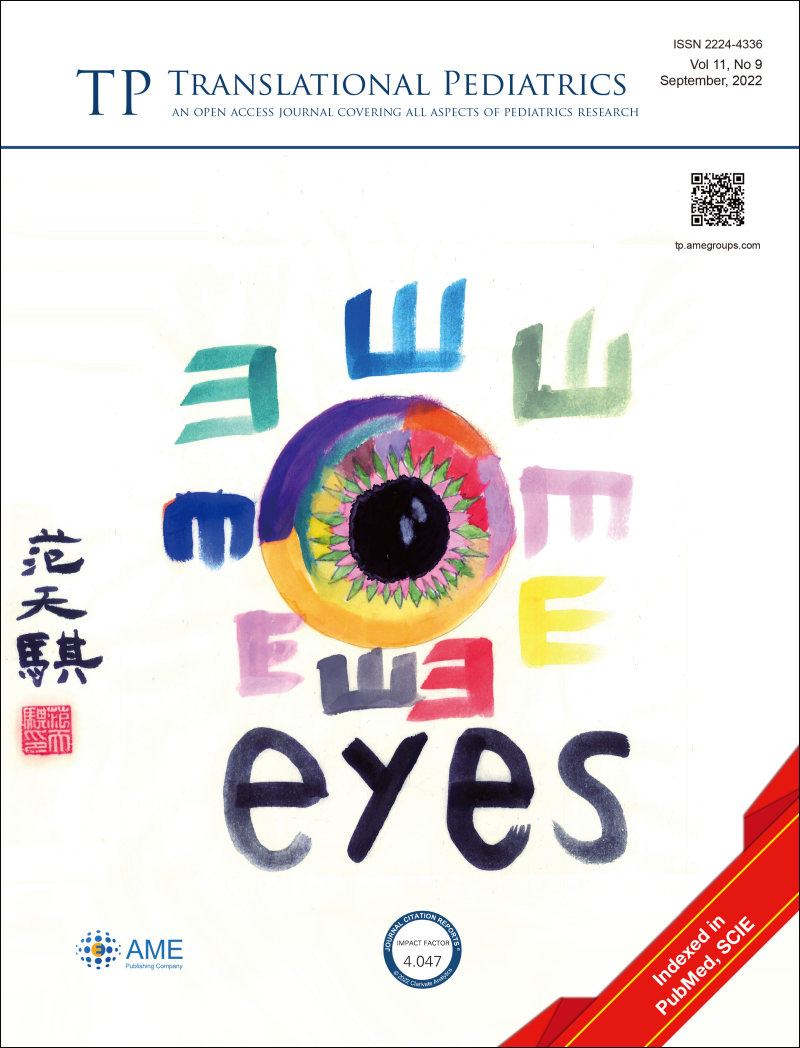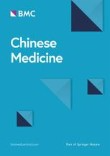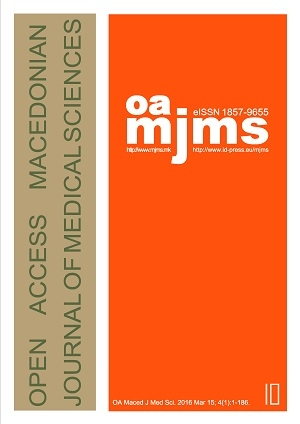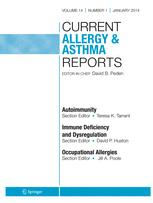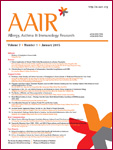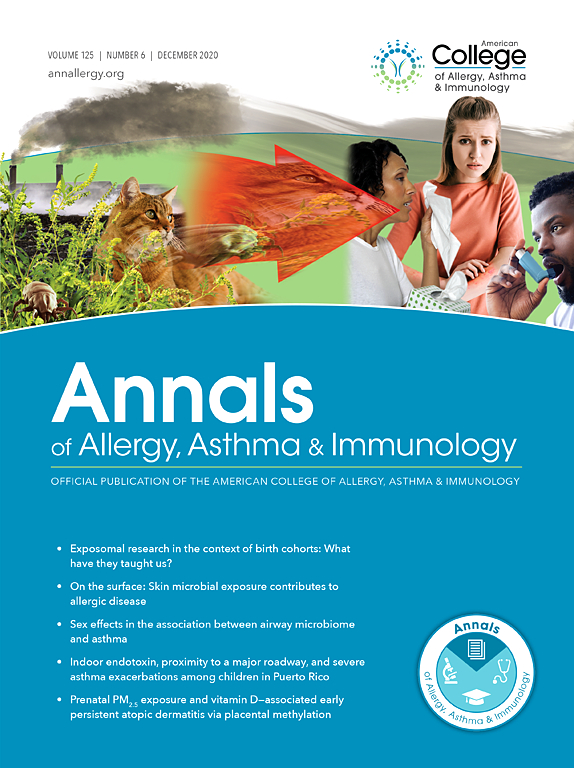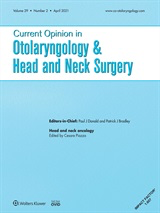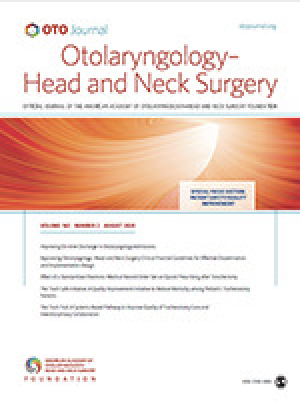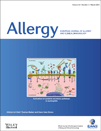Presentation Slides
Chinese Medicine Research Hub
Randomised Controlled Trial
Acupuncture is a safe and effective treatment for Seasonal Allergic Rhinitis, significantly improving symptoms without needing relief medication or causing side effects.
2022 The American Journal of Chinese Medicine Effect of Acupuncture in the Treatment of Seasonal Allergic Rhinitis: A Randomized Controlled Clinical Trial
Xue CC, English R, Zhang JJ, Da Costa C, Li CG
Chinese Medicine Research Hub
Review Article
Allergic rhinitis in children, according to traditional Chinese medicine, is interrelated with the functionality of lungs, spleen, and kidney and can be treated with combined Western and Chinese herbal medicines.
2021 Translational Pediatrics Current status of Chinese herbal medicine to treat allergic rhinitis in children: from the perspective of Western medicine—a narrative review
Liang J, Gu Q
Chinese Medicine Research Hub
Systematic Review
The use of Yu Ping Feng San for pediatric allergic rhinitis appears relatively safe compared to Western medical therapy yet its routine use remains unsupported.
2021 Medicine Yu ping feng san for pediatric allergic rhinitis
Liao Y, Zhong J, Liu S, Dai M, Liu Y, Li X, Yang Y, Zhang D, Lai D, Lu T, Zhang Q, Zhao Y
Chinese Medicine Research Hub
Systematic Review
Gui Zhi Decoction and associated formulas significantly improve the effectiveness of allergic rhinitis treatments when used alone or combined with Western medicine.
2021 Evidence-Based Complementary and Alternative Medicine Efficacy and Safety of Guizhi Decoction AssociatedFormulas for Allergic Rhinitis: A Systematic Review
Yang S, Fu Q, Deng H, Wu J, Zhang Q, Wang L, Yao X
Chinese Medicine Research Hub
Systematic Review
Our findings revealed that all acupuncture methods are effective and safe for allergic rhinitis. Acupuncture plus conventional medicine are potentially the most effective treatment strategies for allergic rhinitis.
2020 Chinese Medicine Acupuncture methods for allergic rhinitis: a systematic review and bayesian meta-analysis of randomized controlled trials.
Yin, Z., Geng, G., Xu, G. et al.
Chinese Medicine Research Hub
Review Article
Traditional Chinese Medicine, specifically acupuncture, demonstrates promising effects in managing allergic diseases like allergic rhinitis and asthma.
2020 Current Allergy and Asthma Reports Traditional Chinese Medicine (TCM) and Allergic Diseases
Chan HHL, Ng T
Chinese Medicine Research Hub
Meta-Analysis
Consumption of raw milk early in life appears to provide protection against asthma and allergies, regardless of whether children live on farms or in rural, non-farm areas.
2020 The Journal of Allergy and Clinical Immunology: In Practice The Beneficial Effect of Farm Milk Consumption on Asthma, Allergies, and Infections: From Meta-Analysis of Evidence to Clinical Trial
Brick T, Hettinga K, Kirchner B, Pfaffl MW, Ege MJ
Chinese Medicine Research Hub
Randomised Controlled Trial
Acupuncture appeared to significantly reduce the number of days of antihistamine use while improving rhinitis-specific quality of life and seasonal allergic rhinitis symptoms
2018 Acupuncture in Medicine Impact of acupuncture on antihistamine use in patients suffering seasonal allergic rhinitis: secondary analysis of results from a randomised controlled trial
Adam D, Grabenhenrich L, Ortiz M, Binting S, Reinhold T, Brinkhaus B
Chinese Medicine Research Hub
Systematic Review
Chinese herbal medicine tends to improve the quality of life of patients suffering from allergic rhinitis.
2018 Allergy, Asthma & Immunology Research Chinese Herbal Medicine to Treat Allergic Rhinitis: Evidence From a Meta-Analysis
Zhang X, Lan F, Zhang Y, Zhang L
Chinese Medicine Research Hub
Systematic Review
Yu Ping Feng San, a Chinese herbal medicine, combined with pharmacotherapy could be effective for treating allergic rhinitis in adults.
2017 BMC Complementary Medicine and Therapies Potential effectiveness of Chinese herbal medicine Yu ping feng san for adult allergic rhinitis: a systematic review and meta-analysis of randomized controlled trials
Luo Q, Zhang CS, Yang L, Zhang AL, Guo X, Xue CC, Lu C
Chinese Medicine Research Hub
Randomised Controlled Trial
Four weeks of acupuncture treatment is a safe and effective option for clinical management of seasonal allergic rhinitis in the Melbourne area for patients' symptom relief and quality of life improvement.
2015 Annals of Allergy, Asthma & Immunology Acupuncture for seasonal allergic rhinitis: a randomized controlled trial
Xue CC, Zhang AL, Zhang CS, DaCosta C, Story DF, Thien FC
Chinese Medicine Research Hub
Systematic Review
There are high-quality randomized controlled trials that demonstrate efficacy and effectiveness for acupuncture in the treatment of both seasonal and perennial allergic rhinitis.
2015 Current Opinion in Otolaryngology & Head and Neck Surgery Acupuncture and allergic rhinitis
Malcolm B. Tawa, William D. Reddyb, Folashade S. Omolec, and Michael D. Seidmand
Chinese Medicine Research Hub
Practice Guideline
Clinicians may offer acupuncture, or refer to a clinician who can offer acupuncture, for patients with allergic rhinitis who are interested in nonpharmacologic therapy.
2015 Otolaryngology-Head and Neck Surgery Clinical Practice Guideline: Allergic Rhinitis
Seidman MD et al.
Chinese Medicine Research Hub
Meta-Analysis
Our meta-analysis suggests that that acupuncture could be a safe and valid treatment option for allergic rhinitis patients.
2015 American Journal of Rhinology & Allergy Acupuncture for the Treatment of Allergic Rhinitis: A Systematic Review and Meta-Analysis
Feng S, Han M, Fan Y, Yang G, Liao Z, Liao W, Li H
Chinese Medicine Research Hub
Randomised Controlled Trial
Acupuncture was found to be a more effective and safe treatment for allergic rhinitis than sham acupuncture or no treatment.
2012 Allergy A multicenter, randomized, controlled trial testing the effects of acupuncture on allergic rhinitis
Choi SM, Park JE, Li SS, Jung H, Zi M, Kim TH, Jung S, Kim A, Shin M, Sul JU, Hong Z, Jiping Z, Lee S, Liyun H, Kang K, Baoyan L
Executive Summary
Write an executive summary in the form of a blog article on the topic of "Research into Chinese medicine treatment for Hay Fever" summarising the research below and using language that can be easily understood by patients and avoiding medical jargon using a professional and caring tone of voice.
Write an executive summary in the form of a blog article on the topic of "Researched Chinese medicine treatments for Hay Fever" summarising the research below in an objective and easy to understand way, and using language that can be easily understood by patients. Group the article into Chinese medicine treatments first, followed by nutrition and other treatments. Avoid using medical jargon and use a professional and caring tone of voice.
Write me a concise but easy to understand executive summary on the topic of "Chinese medicine treatments for Hay Fever" based on the following research that I will give you. Your summary should be 2 paragraphs long in Australian English spelling and include references to the studies.
A Randomised Controlled Trial published in 2022 in the journal The American Journal of Chinese Medicine found that Acupuncture is a safe and effective treatment for Seasonal Allergic Rhinitis, significantly improving symptoms without needing relief medication or causing side effects. The study was a two-phase, single-blind, crossover clinical trial where randomly assigned subjects, split into two groups, were treated with either real or sham acupuncture. All participants received treatment thrice a week for four weeks straight before being flipped onto the other form of treatment for another four uninterrupted weeks without a washout period. The real acupuncture treatment plan was guided by Chinese Medicine Theory. The subjects' responses were measured at various stages - before, during, and after the trials.
In the study, significant improvement was marked in the subjective symptom scores, both nasal and non-nasal, between the group that received the genuine acupuncture and the sham treatment. It was noteworthy, however, that no marked differences were found in the relief medication scores between the two groups. There were also no recorded side effects from either the real or sham acupuncture groups. This suggests that acupuncture proves to be a safe and effective alternative for managing Seasonal Allergic Rhinitis.
A Review Article published in 2021 in the journal Translational Pediatrics found that Allergic rhinitis in children, according to traditional Chinese medicine, is interrelated with the functionality of lungs, spleen, and kidney and can be treated with combined Western and Chinese herbal medicines. The methodology of this study was based on a review of both traditional Chinese and Western medical theories and practices. Chinese theory postulates that BiQiu, or allergic rhinitis in children, is primarily related to a congenital deficiency in vital qi, dysfunction of the lungs inhibiting nose orifices, and a deficiency of spleen and kidney leading to lung qi deficiency. The review looked into herbal monomers and compounds of Chinese herbal medicines as potential treatments for allergic rhinitis, while also considering the impact of external factors like the cold and inadequate diet.
The review highlighted some of the effects and shortcomings of Chinese herbal medicines used alongside Western medicines for treating allergic rhinitis. Particularly, it focussed on how the unique perceptions of life science of the human body from both Eastern and Western cultures can be brought together for a comprehensive method of treatment. The study also outlined future trends of research to enhance this combined treatment approach.
A Systematic Review published in 2021 in the journal Medicine found that The use of Yu Ping Feng San for pediatric allergic rhinitis appears relatively safe compared to Western medical therapy yet its routine use remains unsupported. The study undertakes a systematic search across multiple databases, including PubMed, the Excerpta Medical Database, Cochrane library and more, for randomized controlled trials (RCTs) concerning the use of YPFS for pediatric allergic rhinitis. Extracted results were subjected to stringent bias-risk analysis based on the Cochrane Handbook. A meta-analysis was then implemented using RevMan 5.3 software, and the Grading of Recommendations Assessment, Development and Evaluation methodology was applied to check the quality of evidence for every outcome.
The study pooled 10 RCTs covering 1,069 participants aged between 3-15 years for initial inclusion. After certain exclusions, it was determined from the remaining eight RCTs that the overall efficacy did not show any notable advantage for the test group. In addition, inspections into variation of serum immunoglobulin levels showed no statistical significance. However, the safety of YPFS displayed better results, demonstrating a relatively safer approach with lower recurrence rates compared to Western medical therapy.
A Systematic Review published in 2021 in the journal Evidence-Based Complementary and Alternative Medicine found that Gui Zhi Decoction and associated formulas significantly improve the effectiveness of allergic rhinitis treatments when used alone or combined with Western medicine. The study aimed to evaluate the efficacy of Guizhi Decoction and associated formulas for treating allergic rhinitis. It included a comprehensive search of seven online databases for studies published until February 23, 2020. Each selected study's quality was assessed using the Cochrane Collaboration risk of bias tool. The research used systematic reviews based on the Cochrane systematic review method, facilitated by RevMan 5.3 Software. Interventions in the study varied from using Guizhi Decoction and associated formulas alone to combining them with Western medicine, acupoint-based therapy, Chinese patent medicine, and placebo control.
Data from 23 trials involving 2281 participants were collected and systematically analysed. The results showed that Guizhi Decoction and associated formulas, either alone or in conjunction with Western medicine or acupoint-based therapies, exhibited higher efficacy compared to Western medicine alone. The study also reported that adding nasal traditional Chinese medicine fumigation therapy to the Guizhi Decoction formulations could further improve treatment effectiveness. Adverse events were primarily mild and primarily associated with the control groups that used Western medicine alone, requiring no specific medical intervention.
A Systematic Review published in 2020 in the journal Chinese Medicine found that Our findings revealed that all acupuncture methods are effective and safe for allergic rhinitis. Acupuncture plus conventional medicine are potentially the most effective treatment strategies for allergic rhinitis. Our findings revealed that all acupuncture methods are effective and safe for allergic rhinitis. Moreover, either moxibustion or manual acupuncture plus conventional medicine are potentially the most effective treatment strategies for allergic rhinitis. Based on these findings, it is evident that acupuncture therapy is not inferior to pharmacologic therapy. Therefore, for allergic rhinitis patients who are either unresponsive to conventional medicine or are intolerant to adverse events, acupuncture therapy should be administered. However, the quality of these included trials was mainly ranked as moderate quality, we recommend additional well-designed RCTs with larger sample sizes to validate these findings.
A Review Article published in 2020 in the journal Current Allergy and Asthma Reports found that Traditional Chinese Medicine, specifically acupuncture, demonstrates promising effects in managing allergic diseases like allergic rhinitis and asthma. The methodology for this paper involved an extensive review of recent publications, predominantly those presenting randomized controlled trials, that assess the use of Traditional Chinese Medicine (TCM) in treating allergies. The focus was on the two most popular treatment modalities in TCM, Chinese herbal medicine and acupuncture. Publications detailing the mechanisms by which TCM impacts allergic diseases, as well as literature in Chinese, were also examined.
The analysis of the results showed an increasing trend of using TCM, specifically Chinese herbal medicine, to manage allergic diseases. However, literature evidence was found lacking to conclusively establish its effectiveness. On the other hand, acupuncture showed more definitive evidence of its utility, especially when treating allergic rhinitis and asthma, either as a standalone intervention or alongside conventional western medication. Its effectiveness in treating atopic eczema and urticaria was less clear, nonetheless, it's recommended to be incorporated into the treatment of specific allergic diseases on a personalized basis.
A Meta-Analysis published in 2020 in the journal The Journal of Allergy and Clinical Immunology: In Practice found that Consumption of raw milk early in life appears to provide protection against asthma and allergies, regardless of whether children live on farms or in rural, non-farm areas. Whoever did the research carried out a comprehensive literature review, identifying twelve relevant publications from eight unique studies. Their approach involved a meta-analysis to substantiate the protective effect of raw milk consumption in early life, particularly for ages ranging from less than one year old to five years old. They further analyzed the impacts of raw milk on not only asthma but also other ailments such as wheezing, hay fever, allergic rhinitis, and atopic sensitization. Moreover, evidence was provided about the beneficial effects of raw milk for children, both living on the farms and those in rural sectors but not on farms.
Moreover, in the interpretation of results, it was clearly evident that the consumption of raw milk had an independent effect, separate from other farm exposures. In essence, even children not residing on farms theoretically can still gain from the benefits of raw milk consumption. However, they express a strong sense of caution, advocating against the consumption of raw milk due to the possibility of life-threatening infections. Furthermore, the distinction between raw farm milk and industrially processed milk was underlined to highlight differences in cellular components, fat fraction, and heating degrees. Preliminary findings link these characteristics and attributes of raw milk to heat-labile molecules and components found in its fat fraction.
A Randomised Controlled Trial published in 2018 in the journal Acupuncture in Medicine found that Acupuncture appeared to significantly reduce the number of days of antihistamine use while improving rhinitis-specific quality of life and seasonal allergic rhinitis symptoms The data from 414 patients were analysed. The acupuncture group used antihistamines significantly less often compared with the other groups (acupuncture vs sham acupuncture: mean difference −4.49 days, p=0.01; acupuncture vs RM: mean difference −9.15 days, p<0.001). Approximately 38% of the acupuncture group did not use any antihistamine in contrast to only 16% in the RM group. The pre-post comparison suggested that the acupuncture patients did not need to increase the days of antihistamine use to alleviate their symptoms, unlike the other groups.
Acupuncture appeared to significantly reduce the number of days of antihistamine use while improving RQoL and SAR symptoms; it can therefore be considered a valuable, additional treatment option for patients with SAR.
A Systematic Review published in 2018 in the journal Allergy, Asthma & Immunology Research found that Chinese herbal medicine tends to improve the quality of life of patients suffering from allergic rhinitis. The researchers examined randomized clinical trials (RCTs) to understand the effect of Chinese herbal medicine (CHM) on allergic rhinitis (AR). They conducted a comprehensive search of PubMed, Medline, and Springer databases till March 2017, specifically looking for trials that compared CHM's effectiveness to a placebo in treating AR. They evaluated total nasal symptoms and quality of life, also performing sensitivity and subgroup analyses to further explore the source of heterogeneity in the trial results.
The study included eleven RCTs in the meta-analysis, which revealed significant heterogeneity among them. This means that the data from these individual studies varied a lot, prompting the researchers to use a random effects model to consolidate the data. While CHM did not make a notable difference in alleviating symptoms like an itchy nose, sneezing, or total nasal symptoms, it did result in a noticeable improvement in the overall quality of life of the AR patients.
A Systematic Review published in 2017 in the journal BMC Complementary Medicine and Therapies found that Yu Ping Feng San, a Chinese herbal medicine, combined with pharmacotherapy could be effective for treating allergic rhinitis in adults. The paper evaluates Chinese herbal medicine, YPFS, for treating allergic rhinitis in adults by conducting a meta-analysis and subgroup meta-analyses of several randomized controlled trials (RCTs). Seven databases were searched from their inceptions to September 2017 where RCTs evaluating YPFS for adult allergic rhinitis were included. The Cochrane risk of bias tool was used to assess the methodological quality of these studies and meta-analysis and subgroup meta-analyses were conducted to evaluate the effectiveness of YPFS.
Based on the results, YPFS when used in combination with pharmacotherapy seemed to be more effective than using pharmacotherapy alone for treating allergic rhinitis. The paper highlighted an alleviation of four individual nasal symptom scores post YPFS combination treatment; these being itchy nose, sneezing, blocked nose, and runny nose. Furthermore, it was found that the YPFS combination treatment was more beneficial when it was used for more than three weeks. The paper also mentions that YPFS was safe and well-tolerated for treating adult allergic rhinitis. However, it did not seem to be superior to the second-generation antihistamine.
A Randomised Controlled Trial published in 2015 in the journal Annals of Allergy, Asthma & Immunology found that Four weeks of acupuncture treatment is a safe and effective option for clinical management of seasonal allergic rhinitis in the Melbourne area for patients' symptom relief and quality of life improvement. A total of 175 participants were included in this trial. RA was significantly better than SA for decreasing SAR symptom severity (sneezing, mean difference −0.28, 95% confidence interval −0.51 to −0.05; itchiness of ears and palate, mean difference −0.40, 95% confidence interval −0.69 to −0.11) at the end of treatment and improving participants' QoL at the end of the treatment and follow-up phases. Furthermore, the acupuncture treatment was safe and well tolerated.
A Systematic Review published in 2015 in the journal Current Opinion in Otolaryngology & Head and Neck Surgery found that There are high-quality randomized controlled trials that demonstrate efficacy and effectiveness for acupuncture in the treatment of both seasonal and perennial allergic rhinitis. Our review of the medical literature from January 2013 through December 2014 revealed that there is research demonstrating efficacy and effectiveness for acupuncture in the treatment of allergic rhinitis, as well as improvement of quality of life and quality-adjusted life-years.
A Practice Guideline published in 2015 in the journal Otolaryngology-Head and Neck Surgery found that Clinicians may offer acupuncture, or refer to a clinician who can offer acupuncture, for patients with allergic rhinitis who are interested in nonpharmacologic therapy. The primary purpose of this guideline is to address quality improvement opportunities for all clinicians, in any setting, who are likely to manage patients with allergic rhinitis, as well as to optimize patient care, promote effective diagnosis and therapy, and reduce harmful or unnecessary variations in care. The guideline is intended to be applicable for both pediatric and adult patients with allergic rhinitis. Children under the age of 2 years were excluded in this clinical practice guideline because rhinitis in this population may be different than in older patients and is not informed by the same evidence base.
A Meta-Analysis published in 2015 in the journal American Journal of Rhinology & Allergy found that Our meta-analysis suggests that that acupuncture could be a safe and valid treatment option for allergic rhinitis patients. Because acupuncture may modulate the immune system, it has been proposed as a useful treatment for patients with allergic rhinitis (AR). Here, we assessed the evidence for the clinical efficacy of acupuncture for the management of AR patients by performing a systematic review and meta-analysis of the published literatures.
Thirteen full papers that met our inclusion criteria were included, and a total of 2365 participants, including 1126 as treatment group and 1239 as control group, were enrolled. Compared with control group, acupuncture treatment group exerted a significant reduction in nasal symptom scores (weighted mean difference [WMD]: -4.42, 95% confidence interval [CI]: -8.42 to -0.43, p = 0.03), medication scores (WMD: 1.39, 95% CI: -2.18 to -0.61, p = 0005), and serum IgE (WMD: -75.00, 95% CI: -91.17 to -58.83, p < 0.00001). Data relating to Rhinitis Quality of Life Questionnaire (RQLQ) and 36-Item Short-Form (SF-36) component score in included studies were analyzed, which ultimately point to the efficacy of acupuncture treatment in improving quality of life in AR patients. No fatal events were reported in any of the included studies, and no serious systemic reaction, which needed treatment in the hospital, was related to the acupuncture treatment.
A Randomised Controlled Trial published in 2012 in the journal Allergy found that Acupuncture was found to be a more effective and safe treatment for allergic rhinitis than sham acupuncture or no treatment. Methodology: The study was a multicenter, parallel-controlled experiment. Three groups of randomized participants either received active acupuncture, sham acupuncture (minimal acupuncture at nonacupuncture points), or were placed on a waitlist (no acupuncture treatment). The treatments were given three times a week over a four-week period.
Discussion of Results: The active acupuncture group showed a marked reduction in allergic rhinitis symptoms compared to the other two groups. Despite this, both acupuncture types still showed significant improvements in symptoms when compared to their initial condition, confirming the efficacy of acupuncture in treating allergic rhinitis.

